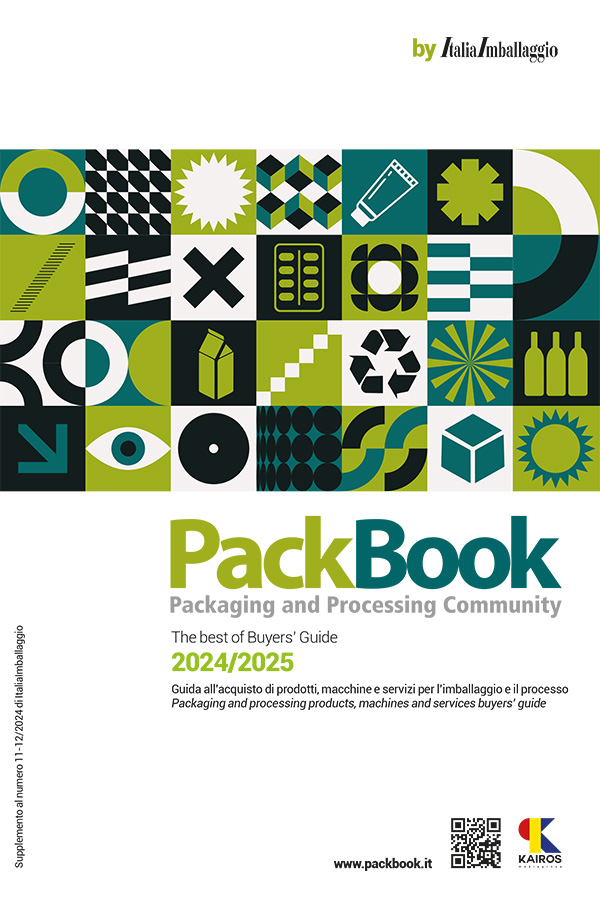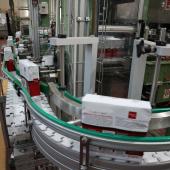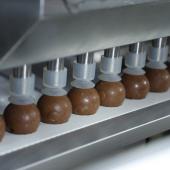Current status and prospects for FCM legislation
A detailed report of the issues addressed and debated during the 21st Italian FCM Food Contact Material Seminar, organized by the Italian Packaging Institute in collaboration with the country’s National Institute for Health (ISS).
By Marinella Vitulli, Food Contact Center
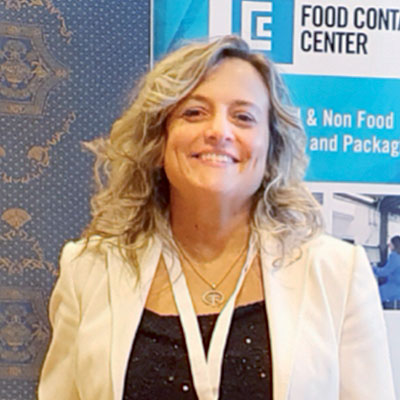 Numerous and interesting the topics covered in the 21st edition of the seminar dedicated to the subject of FCM, organized on 12 December 2019 in Milan by the Italian Packaging Institute and which saw the usual participation of the working group coordinated by Dr. Maria Rosaria Milana of the Istituto Superiore di Sanità - the Italian National Institute for Health. Following the formula of the preceding edition, after expounding the laws and regulatory changes in the morning, the afternoon session featured question time and direct interventions, with the aim of providing effective answers to the numerous operators who attended the seminar.
Numerous and interesting the topics covered in the 21st edition of the seminar dedicated to the subject of FCM, organized on 12 December 2019 in Milan by the Italian Packaging Institute and which saw the usual participation of the working group coordinated by Dr. Maria Rosaria Milana of the Istituto Superiore di Sanità - the Italian National Institute for Health. Following the formula of the preceding edition, after expounding the laws and regulatory changes in the morning, the afternoon session featured question time and direct interventions, with the aim of providing effective answers to the numerous operators who attended the seminar.
The state of affairs
The day began with the presentation of the current situation of FCM regulations.
Who ensures safety?
It was clarified that the safety of FCMs is assessed by the European Food Safety Agency EFSA, for materials that have harmonized legislation and for specific substances or warnings, and by the Member States for what has not been harmonized. In Italy risk assessments are carried out by the Istituto Superiore di Sanità, which recently published an interesting study on the safety of aluminium articles, striving to clarify things after some alarming news, perhaps not adequately verified, was transmitted by the media.
In terms of the details of the individual cases and materials, the safety of FCMs is assessed by the economic operators who place them on the market under the responsibility of the said companies.
In the FCM sector, scientific knowledge, technical competence on test methods and conformity analysis are also required.
- Analytical tests are carried out by the European Reference Laboratory (EURL-ISPRA), by National Reference Laboratories (ISS for Italy) and by private Laboratories (pertaining to the company or a third party).
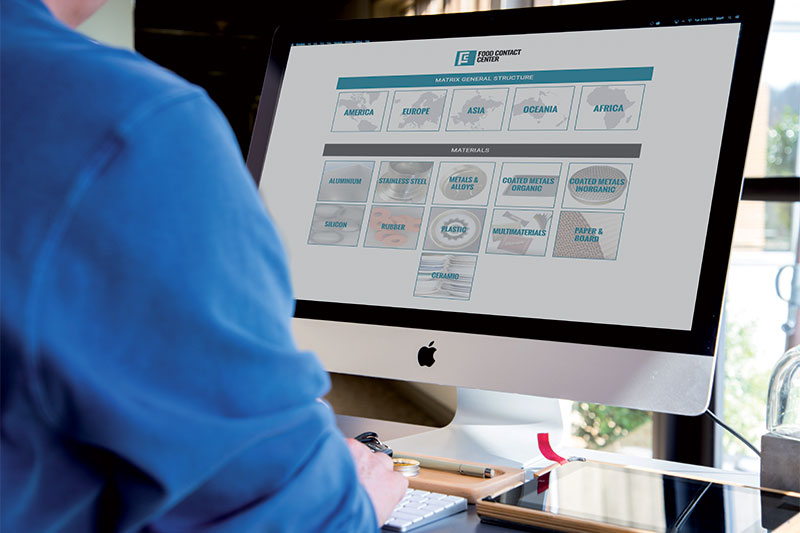
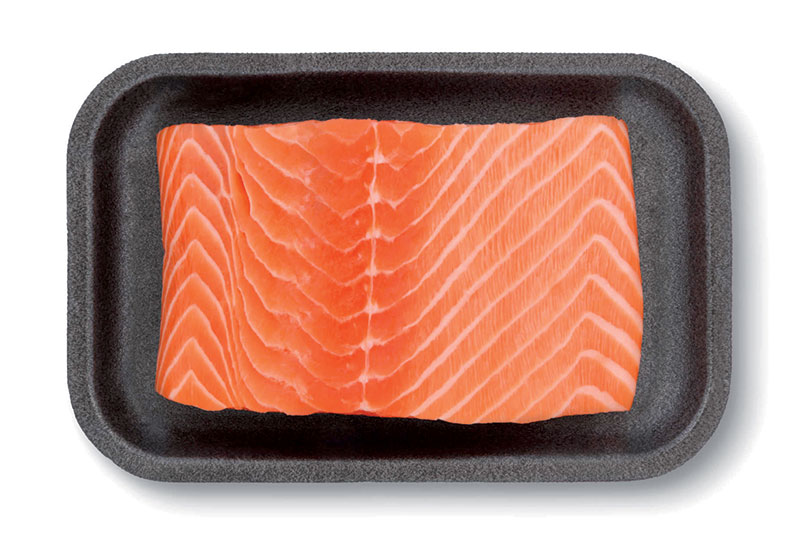
Obligation of greater clarity
- FCMs are included in the food legislation, represented by Regulation 178/200/EC (under revision and therefore under the general provisions of the Official Control of food products, described in Regulation 882/2004/EC, revised with Regulation 625/2017/EC ).
- Responsibilities for goods transported in Europe have also been clarified. With regard to imported goods, the importer has the obligations of the manufacturer. As regards the goods produced, the needs relating to production intermediaries have also been clarified; in fact, there are responsibilities along the chain, related to compliance and traceability that cannot be ignored and these are aspects that therefore do not concern only finished objects.
- It has also been clarified that the legislation does not only concern packaging, but also machinery, work surfaces, utensils, kitchenware, tableware etc.
- The key principles reported in the framework regulations Reg CE 1935: 2004 and Reg CE 2023: 2003 were reiterated; Regarding the correct labeling of the articles, it has been underlined that art 15 of the EC Reg 1935: 2004 provides that “The labeling, advertising and presentation of a material or object must not mislead consumers”.
This is in contrast with what sometimes happens for some objects; In June 2019, a working group of experts of the European Commission published the summary of the discussions on the use and placing on the market of plastic materials and articles for food contact and articles containing ground bamboo or other similar components.
These objects often carry labels with ecological advertising; however, these are melamine objects with the addition of bamboo powder and other “natural” substances (for example corn) or composite products made from bamboo fibers with binders based on polymeric resins.
The objects in question are often sold with the claim “biodegradable”, “eco-sustainable”, “natural” or even as “100% bamboo”. This does not correspond to the true nature of the product and misleadingly affects the purchasing decision.
How the approach and controls on the supply chain have changed
- In the morning, national laws were also presented, for which, except for stainless steel, there are no significant changes to report.
- With regard to the Framework Regulations, the European Commission is evaluating the situation on the EU market to verify whether the system is adequate for the purpose, consisting of consumer safety and the proper functioning of the internal market.
- Among the existing activities, the EU Recommendation 794/2019 relating to a coordinated control plan on FCMs is worthy of mention. The objectives are to have a greater knowledge on the prevalence of substances that migrate from FCMs and the substances present in them. The control plan is concentrated on several substances: primary aromatic amines, formaldehyde, melamine, phenol, bisphenols etc ... Checks are also to be made on phthalic and non-phthalic plasticizers, fluorinated compounds, heavy metals, etc ...
- The Coordinated Control Plan, for which the results are expected to be verified within the first months of 2020, is parallel to the evaluation of the FCM legislation. The information from the control plan will be used to determine the need for future intervention; for example, additional control measures are foreseen for substances deriving from plastic materials. The data will also allow the construction of a database of information useful for determining future priorities «in the context of the evaluation of the FCM legislation, in particular as regards materials for which there are no specific harmonized measures».
- Other activities, carried out in 2019 by DG SANTE, concern the study of decisions for authorizations for recycling processes, and the Ceramics Directive, which provides for the lowering of the limits of lead and cadmium, and perhaps also of other elements, and the possible extension to other materials.
- Regarding the activities carried out by EFSA in 2019, the final opinion on phthalates was published on 11 December 2019, with the definition of group TDI tolerable daily doses.
- With regard to the activities carried out by the Council of Europe, it should be noted that the guidelines for Metals and Alloys are under revision. The European reference laboratory EURL JRC ISPRA published in September 2019 the document on the contact conditions for kitchenware/tableware; in February the guidelines on analytical methods for the determination of mineral oils were published.
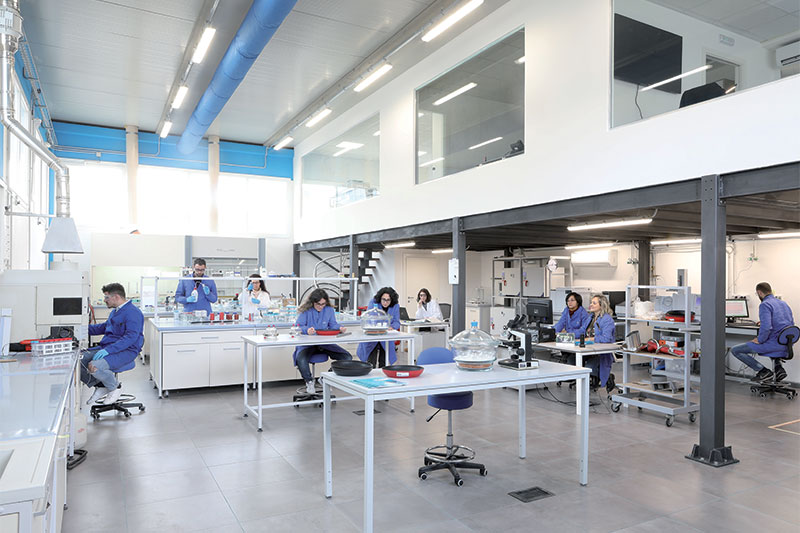
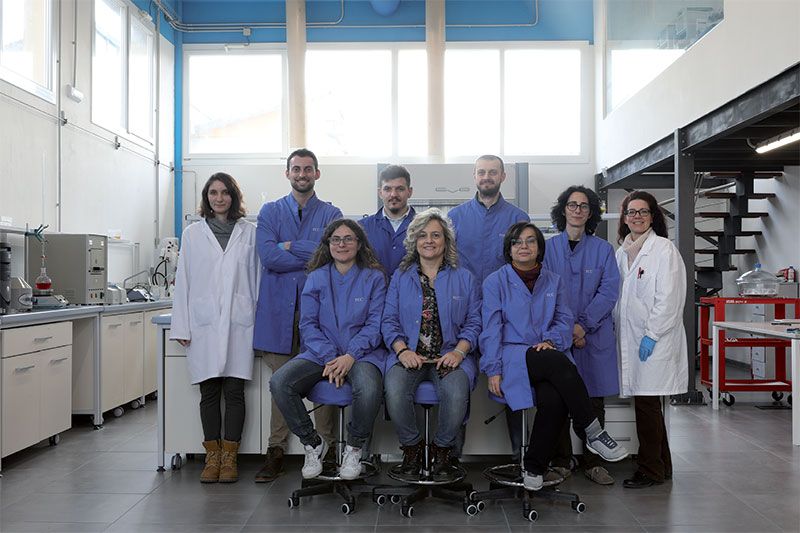
Regulatory news and future prospects
- In addition to the activities described above, which will certainly entail changes in the approaches and controls on the supply chain, as every year a detailed description of the activities in progress relating to the updating of the plastic regulation Reg. 10/2011 were given, through the forthcoming publication of new amendments.
The main points of the new amendments, not yet approved by the Standing Committee, concern the OM standardized test conditions, with the inclusion of contact conditions for materials intended for food contact only at refrigerated or environmental temperatures and for a short duration; specific conditions for machinery and small household appliances are also envisaged, including restrictions for certain metals, limit of 0.002 mg/kg in food or food simulants for each primary aromatic amine.
- Important changes to the test requirements for repeated use are also expected; in fact in the future if the migration increases from the first migration test to the second migration test and from the second migration test to the third migration test, it will not be possible to establish the conformity of the material during its life cycle, even if the specific migration limits are not exceeded. And therefore the materials based on the tests will be declared non-compliant.
- Other future amendments provide for news on biocidal substances, and a specific measure for Glymo, a substance authorized without specific limitation in the field of glass fibers; Glymo is a potentially genotoxic substance used in many materials, for which the generic 10 ppb limit used by the industry as the analytical detection limit may not be sufficient to protect consumer safety.
- In 2020, the amendment of Regulation (EC) 282/2008 on processes for the production of recycled plastics is also expected.
For 2020, therefore, there are numerous works planned by the working groups mentioned so far, which may have various developments; meanwhile, pending the conclusion of the work of the commissions, Dr. Milana did not fail to stress the importance that operators in the sector keep themselves informed about the laws (new migration limits, restrictions, etc.), and that they update their Declarations of Conformity, the Supporting Documentation, as well as the Good Manufacturing Practices system compliant with Reg. CE 2023/2006.
The necessity to adapt the analytical methods in relation to which the laboratories must constantly update themselves was also stressed.
Effective answers for companies
On the afternoon of December 12, the question time session was held, with written questions from the seminar participants and answers from the Istituto Superiore di Sanità team, sometimes followed by in-depth analyses aimed at pointing out the operational aspects.
This year too the debate was of great interest; the questions concerned the management and compliance with the positive lists of Italian law, not always updated with respect to technological and production evolution, the drafting of declarations of conformity, the methods for assessing risk in particular areas such as coffee machines and the coffee dispensed, the management of future analytical checks on objects of repeated use, which must also take into account the uncertainty of measurement.
The large audience of economic operators present in the room was once again able to appreciate the expertise and willingness to dialogue of the Istituto Superiore di Sanità working group.
Hence a day profitable for all, which gave added value to the interpretation of Food Contact Material legislation.
The FOOD CONTACT CENTER Srl - that provides analyses and consultancy, set up in Pistoia in 2016 by Marinella Vitulli - offers its customers years of experience in the study and analysis of packaging and materials.
It provides a personalized and tailor-made service, useful for obtaining technologically suitable and safe products, through a study and a targeted plan, guided by the knowledge of the materials and regulatory affairs connected to the markets, with a view to sustainability and rationality of controls.
Considering the legislative innovations, for which a regulatory update service and online consultation of the global FCM legislation has been developed, the support of the Food Contact Center in situations that need urgent consolidation may include the definition of a plan or a self-control manual, risk assessment through tests aimed at compliance and more besides.
Tests are not the only form allowed for defining compliance: with appropriate assessments guided by specific skills, other calculations or considerations can be associated with a limited number of analytical tests, for example related to migrations by calculation or estimation of simulants and pejorative situations, aimed at associating the tested specimens with various references, also through the evaluation of thicknesses, ingredients and the process used. It is thus possible to program a sustainable test plan for companies, which together with other skills, enable the defining of the supporting documentation.
Fundamental too the evaluation of the NIAS – not intentionally added substances, through untargeted analytical techniques, a topic on which the Center is specialized through studies and construction of libraries and databases carried out in collaboration with the Universities of Pisa and Florence and with the instrumentation manufacturer Sciex.
After the tests, the Food Contact Center can provide further assistance in drafting the declaration of conformity required by law.
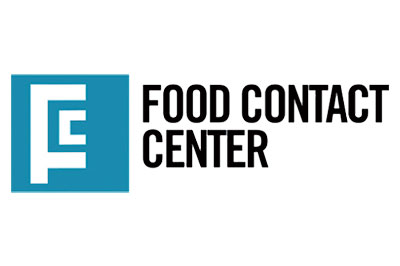
Sede operativa e Laboratorio
Via E. Pestalozzi 63
51100 - Pistoia Italy
Tel. 39 0573 245244
[email protected]
www.foodcontactcenter.com
